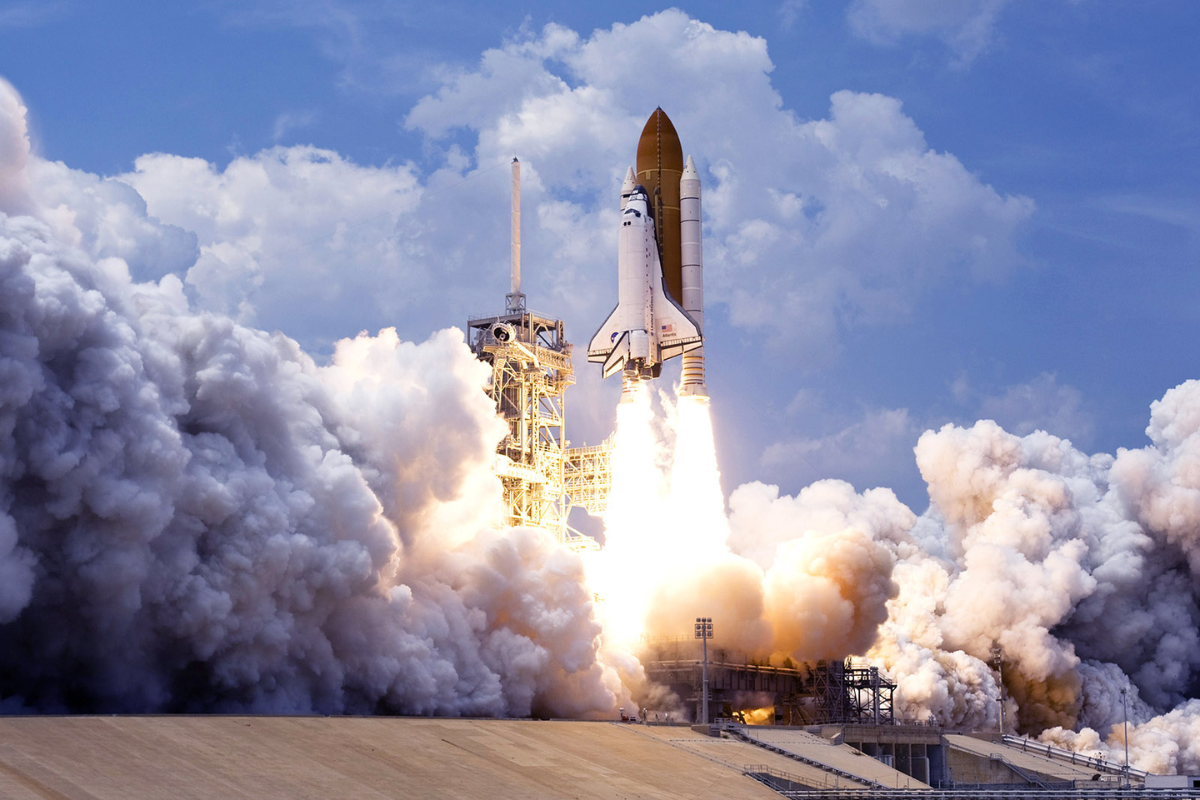As the frontiers of space exploration open to civilians, the need for sustainable space travel becomes increasingly urgent. While the prospect of venturing beyond Earth’s atmosphere holds immense promise for scientific discovery, tourism, and technological advancement, it also poses significant environmental and ethical concerns.

Photo: BRINK News
Space travel, particularly with traditional rocket technology, has a significant environmental footprint. Rocket launches release greenhouse gases like carbon dioxide and nitrous oxide, contributing to climate change. Additionally, space debris generated from launch vehicles and spacecraft can pose long-term threats to future missions and satellites. To ensure the long-term viability of space exploration, we must develop cleaner technologies and adopt responsible practices to minimize our impact on the environment.
Beyond environmental concerns, sustainable space travel also raises ethical questions regarding resource allocation and accessibility. The high cost of current space travel technologies makes them accessible only to a privileged few, perpetuating social and economic inequalities. Furthermore, the potential for space tourism raises concerns about the commodification of space and the exploitation of celestial bodies. Sustainable space travel must be developed with equity and fairness in mind, ensuring that the benefits are accessible to all and that space exploration happens responsibly.
Technological solutions for sustainable space exploration
The current reliance on single-use rockets generates significant waste and environmental impact. Reusable launch vehicles, like SpaceX’s Falcon 9, offer a transformative solution. These rockets can return to Earth and be refueled for multiple missions, drastically reducing launch costs and waste generation. This innovative technology holds the key to making space travel more accessible and affordable while minimizing its environmental footprint.
Fossil fuels, the primary propellant for traditional rockets, contribute heavily to greenhouse gas emissions. To achieve sustainable space exploration, we need to transition to cleaner alternatives. Hydrogen, burning only water vapor as a byproduct, offers a promising option. Biofuels, derived from organic sources, also present a renewable and sustainable solution. However, ensuring their production is truly sustainable remains a challenge. Additionally, electric propulsion systems, while still under development for large rockets, hold significant potential for smaller spacecraft and future space planes due to their high efficiency and lack of emissions.
Space debris poses a significant threat to the space environment and future space missions. Over 20,000 pieces of debris larger than 10 cm currently orbit Earth, creating a collision hazard for active satellites and spacecraft. To ensure the long-term sustainability of space activities, we need to develop and implement technologies to capture and de-orbit this debris. Active debris removal systems, equipped with robotic arms or nets, can capture larger debris pieces. Deorbit sails, attached to defunct satellites, utilize solar radiation pressure to safely burn them up in Earth’s atmosphere. Additionally, ground-based lasers are being explored to vaporize small debris objects, causing them to dissipate harmlessly.

Long-duration space missions and future settlements require self-sustaining systems. These systems must recycle air and water, manage waste, and produce food, minimizing reliance on resources from Earth. Regenerative life support systems convert carbon dioxide exhaled by astronauts back into oxygen, creating a closed-loop system for breathable air. Water recycling technologies filter and purify wastewater for reuse, conserving precious water resources in space. Advanced waste processing systems can convert waste into usable resources, such as fertilizer for growing food. Finally, developing efficient and sustainable methods for space farming will be vital for long-term space missions and settlements.
Building a sustainable future for space exploration: A collaborative effort
Sustainable space travel necessitates a robust international framework. This requires collaboration between nations to establish clear guidelines and regulations for space exploration activities.
One crucial aspect is the development of international treaties and agreements. These agreements can outline best practices for sustainable space exploration and ensure that all spacefaring nations are held accountable for their actions. This includes minimizing environmental impact, preventing space debris, and ensuring the responsible use of resources.
Another essential element is the development of a comprehensive space traffic management system. As space activity increases, this system will be crucial for preventing collisions and ensuring the safety of future missions. This system can track and monitor space objects, identify potential risks, and issue warnings to avoid accidents.
Investing in research and development of sustainable space technologies is vital for long-term progress. This includes funding for developing cleaner propellants, reusable launch vehicles, and closed-loop systems for life support. By supporting these advancements, we can pave the way for a more sustainable future for space exploration.
Transitioning towards sustainable space travel demands broad public support and understanding. This requires transparency, educational initiatives, and citizen science involvement.
Space agencies and companies must be transparent about their environmental impact and actively engage with the public on sustainability issues. This includes openly sharing data, admitting mistakes, and demonstrably working towards improvement. By fostering open dialogue and trust, public support for sustainable space exploration can be strengthened.

Photo: Ovation DMC
Public education programs play a vital role in raising awareness. These programs can educate people about the importance of sustainable space exploration, the environmental risks involved, and the potential benefits of pursuing a more responsible approach. This can lead to greater public engagement and support for sustainable practices.
Engaging the public in citizen science initiatives related to space exploration can foster a sense of ownership and responsibility for the future of space. These initiatives can involve collecting data, analyzing images, or contributing to research projects. By actively participating, citizens can feel connected to the challenges and opportunities of sustainable space exploration and become advocates for its future.
By implementing these policy and governance measures alongside public engagement initiatives, we can build a strong foundation for sustainable space exploration. This collaborative approach will ensure that future generations can explore the cosmos responsibly, minimizing our environmental impact and maximizing the benefits for humanity and the planet we call home.

